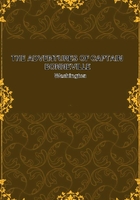
第58章 Irving’s Bonneville - Chapter 20(2)
The presence of the Shoshonie tribe contributed occasionally to cause temporaryjealousies and feuds. The Shoshonie beauties became objects of rivalry among someof the amorous mountaineers. Happy was the trapper who could muster up a redblanket, a string of gay beads, or a paper of precious vermilion, with which to win thesmiles of a Shoshonie fair one.
The caravans of supplies arrived at the valley just at this period of gallantry and goodfellowship. Now commenced a scene of eager competition and wild prodigality at thedifferent encampments. Bales were hastily ripped open, and their motley contentspoured forth. A mania for purchasing spread itself throughout the severalbands--munitions for war, for hunting, for gallantry, were seized upon with equalavidity--rifles, hunting knives, traps, scarlet cloth, red blankets, garish beads, andglittering trinkets, were bought at any price, and scores run up without any thought howthey were ever to be rubbed off. The free trappers, especially, were extravagant in theirpurchases. For a free mountaineer to pause at a paltry consideration of dollars andcents, in the attainment of any object that might strike his fancy, would stamp him withthe mark of the beast in the estimation of his comrades. For a trader to refuse one ofthese free and flourishing blades a credit, whatever unpaid scores might stare him inthe face, would be a flagrant affront scarcely to be forgiven.
Now succeeded another outbreak of revelry and extravagance. The trappers werenewly fitted out and arrayed, and dashed about with their horses caparisoned in Indianstyle. The Shoshonie beauties also flaunted about in all the colors of the rainbow.
Every freak of prodigality was indulged to its fullest extent, and in a little while most ofthe trappers, having squandered away all their wages, and perhaps run knee-deep indebt, were ready for another hard campaign in the wilderness.
During this season of folly and frolic, there was an alarm of mad wolves in the two lowercamps. One or more of these animals entered the camps for three nights successively,and bit several of the people.
Captain Bonneville relates the case of an Indian, who was a universal favorite in thelower camp. He had been bitten by one of these animals. Being out with a party shortlyafterwards, he grew silent and gloomy, and lagged behind the rest as if he wished toleave them. They halted and urged him to move faster, but he entreated them not toapproach him, and, leaping from his horse, began to roll frantically on the earth,gnashing his teeth and foaming at the mouth. Still he retained his senses, and warnedhis companions not to come near him, as he should not be able to restrain himself frombiting them. They hurried off to obtain relief; but on their return he was nowhere to befound. His horse and his accoutrements remained upon the spot. Three or four daysafterwards a solitary Indian, believed to be the same, was observed crossing a valley,and pursued; but he darted away into the fastnesses of the mountains, and was seenno more.
Another instance we have from a different person who was present in the encampment.
One of the men of the Rocky Mountain Fur Company had been bitten. He set outshortly afterwards in company with two white men on his return to the settlements. Inthe course of a few days he showed symptoms of hydrophobia, and became ravingtoward night. At length, breaking away from his companions, he rushed into a thicket ofwillows, where they left him to his fate! [Return to Contents].